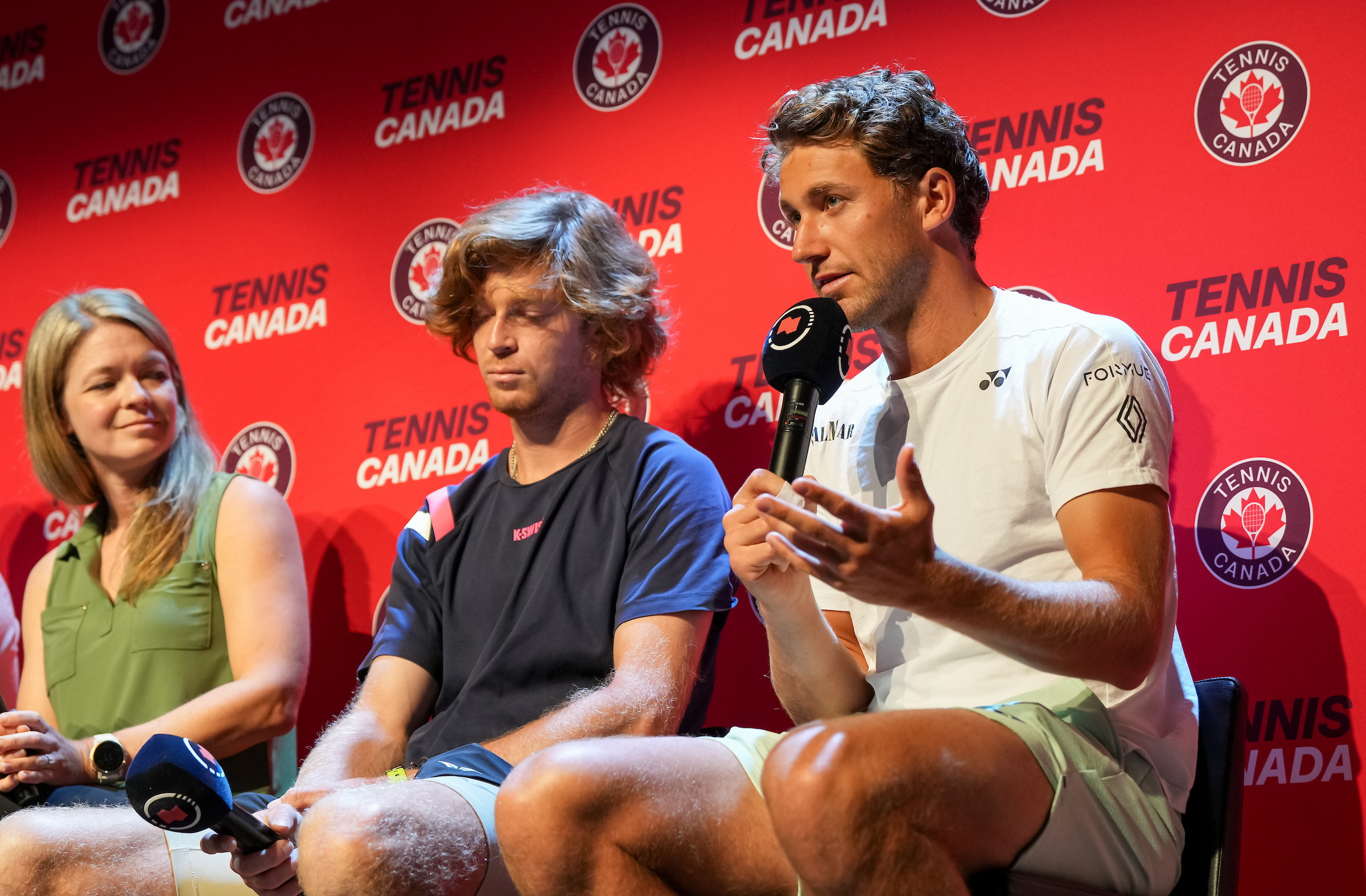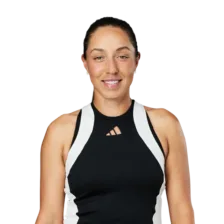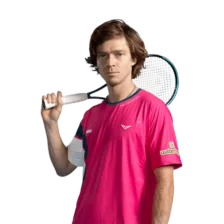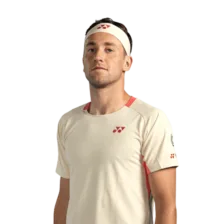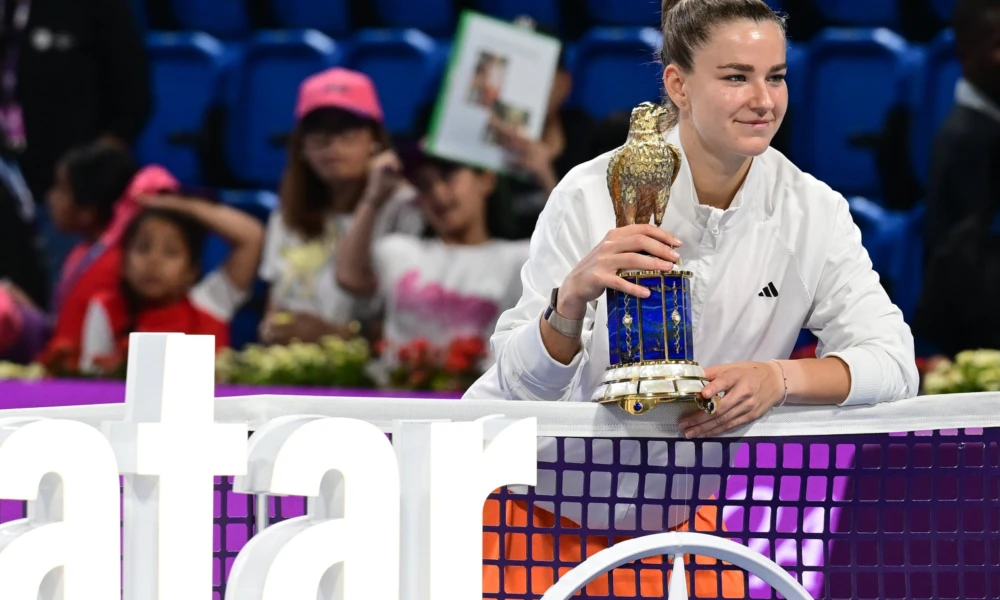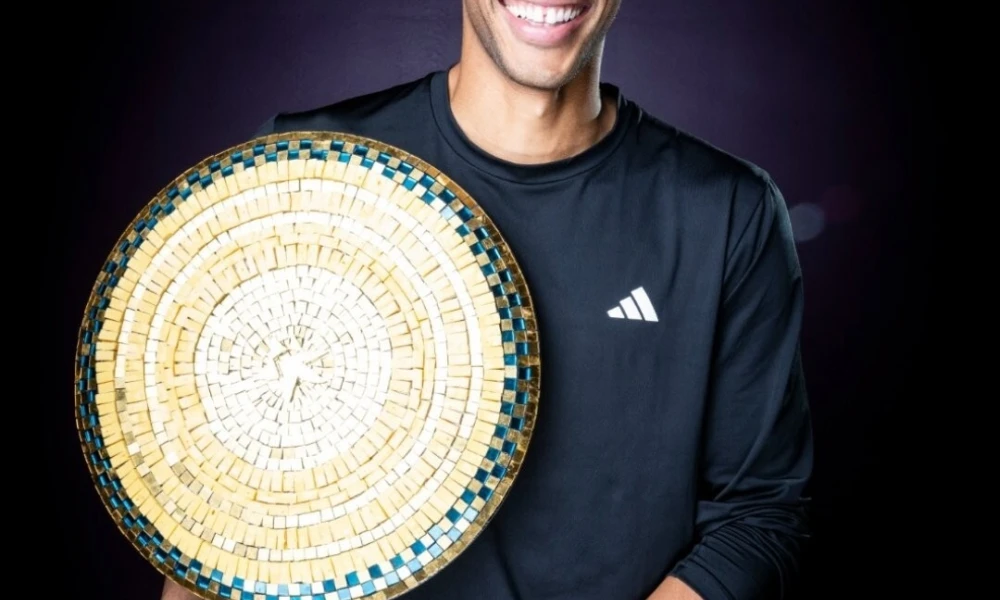ATP Serves and WTA Foundation donate $10,000 each to Canadian Centre for Mental Health and Sport
Top WTA and ATP stars Jessica Pegula, Casper Ruud and Andrey Rublev participated in impactful mental health panels at the National Bank Open presented by Rogers (NBO) in Montreal and Toronto. This was the first time a mental health panel of its kind had been hosted at an ATP Masters 1000 tournament, while the Montreal panel represented the second consecutive year Tennis Canada had staged the event in collaboration with the WTA.
At IGA Stadium, Blair Henley guided the conversation between World No. 4 and reigning NBO champion Pegula, Tournament Director Valérie Tétreault, Mark Gellard, coach of Magda Linette, and Lindsay Brandon, Director of Safeguarding at the WTA Tour. Meanwhile, in Toronto, Tennis Canada’s Director of Wellness Marie‑Josée Bellemare and Craig Boynton, coach of the United States’ Alex Michelsen, spoke alongside Ruud and Rublev, hosted by Sportsnet’s Caroline Cameron.
The discussion in Montreal focussed on how players can maintain a healthy presence online in the age of social media while competing at their best. Part of the discussion was about the Threat Matrix, a proactive monitoring service that aims to protect athletes from online abuse and threats, launched in 2023 by the ITF, WTA, AELTC and USTA.
“A lot of people don’t realise how many bad messages we get and the irony is that it doesn’t matter if we win or lose,” said Pegula. “You have to have thick skin as an athlete, but it’s definitely becoming necessary to change our habits online, to use measures to filter out the negativity, and even to turn off comments during tournament weeks.”
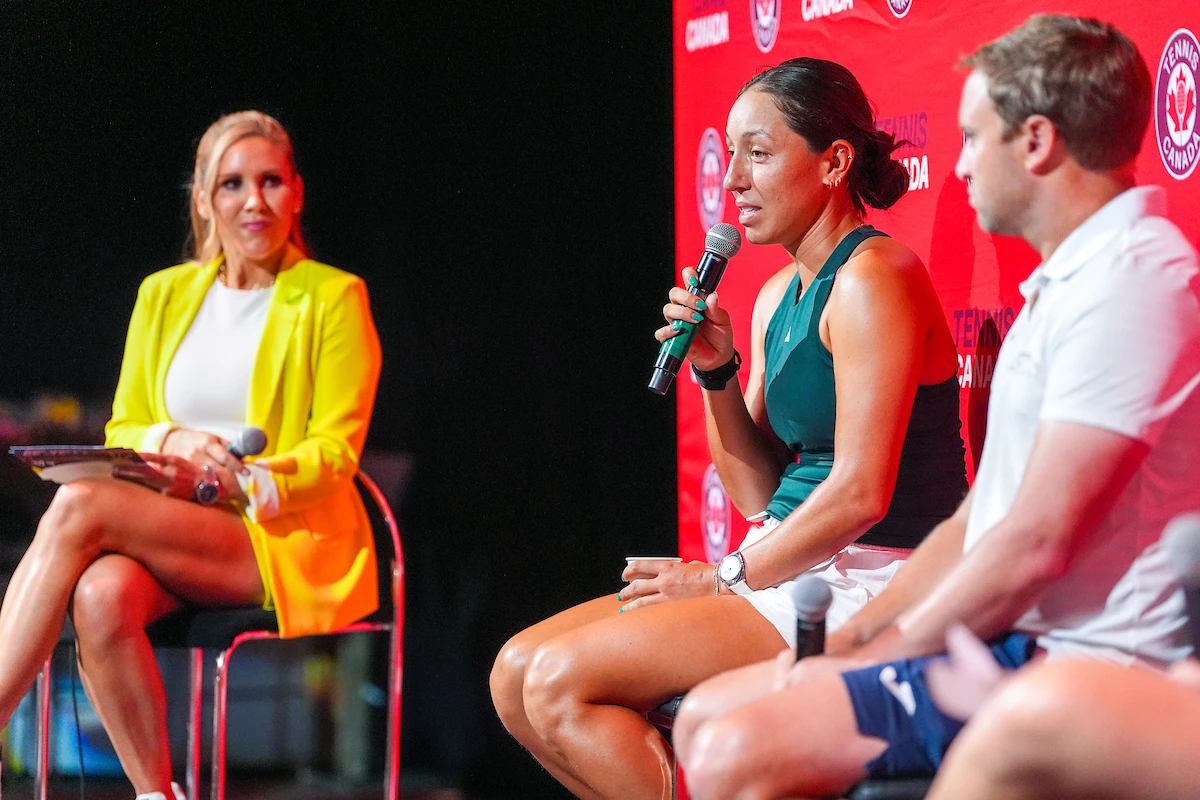
In Toronto, the panel centred around reducing stigma by encouraging open and honest discussions about mental well-being, the impact of that stigma on help-seeking behaviour and how to foster a supportive culture in teams and organizations.
“Certain things you can keep to yourself, but I had a good experience talking with a psychologist,” Ruud said. “You go to the gym with a trainer to work on your fitness, but talking to a psychologist is like working on your mental aspect in the same way – you workout your brain a little bit, get your thoughts sorted and find new ways to motivate yourself. I just found it really helpful. I didn’t [necessarily] want to be a voice [on mental health] but it felt like a natural thing to talk about, and I wanted to advise people that, if you’re struggling or if you have issues, or you’re uncertain if you should talk to someone or not, it’s definitely a good thing to try. It helped for me.”
“In my case, it is not about tennis,” Rublev added. “Tennis was the trigger because I identify myself with tennis. So, for me, it was more about myself. To understand, beyond tennis, what I’m hiding behind tennis, why I’m making so much drama when I’m losing or super high when I’m winning and stuff like that. So, it was more to face myself, to face the real me.”
He added: “It’s not that athletes are different and struggle more than one another. Everyone struggles. Every person who is sitting here has their own struggles and the problem is, in the case of athletes, you can see it. If something is happening with the athlete you can see it on TV, you can see something is bothering him. People who are not famous, you don’t see those things – maybe only their family members see something is happening. It’s not about sport, everyone has their own struggles.”
The panels in Montreal and Toronto were part of Tennis Canada’s overarching Mental Health Strategy, launched in February 2024. In partnership with the University of Ottawa, Own the Podium, the Canadian Centre for Mental Health and Sport (CCMHS), and Game Plan, the strategy aims to improve the mental health and wellness of Tennis Canada athletes, coaches, parents, and staff. The Mental Timeout initiative supported by Beneva is a key part of the strategy’s “Promote” pillar, which aims to bring awareness to the importance of mental health and wellness.
“These stories are so important because they’re motivating, inspirational and they’re breaking down barriers,” said Gavin Ziv, Chief Executive Officer, Tennis Canada. “So, we are very appreciative, and we take this topic very seriously at Tennis Canada. Marie-Josee [Bellemare] and her team are doing incredible work, not just with the kids in our program but with our coaches and parents. This is part of what it takes to be successful. We are happy with where we are, but we know we have a lot more work to do. So, please, keep on listening.”
During the panels in Toronto and Montreal, it was announced that ATP Serves and the WTA Foundation will each make a $10,000 donation to the CCHMS.
